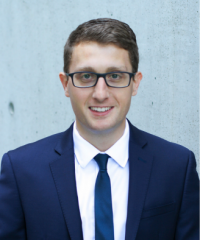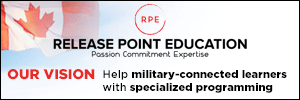The unprecedented challenges brought about because of COVID-19 remind us that we need trained professionals in strategic communications, issues management, political advocacy and policy development.
In a declared state of emergency, the public must be kept informed with real-time, accurate and clearly understood messages. It can be a matter of life or death. Whether it's a municipality or a chamber of commerce, stakeholder organizations need to engage senior governments about emergency operations, advance constituencies' priorities, and secure funding.
More than ever, there is a demand for qualified public affairs professionals in both the public and private sectors. People can gain this training from several academic disciplines. But one stands out - applied politics. This article aims to encourage individuals to study for an applied politics degree and for post-secondary institutions to expand program offerings in this field of growing importance.
Applied politics curriculums bridge traditional political science theories with hands-on, practitioner training. Students should study Canadian federalism and government institutions. Still, it is equally imperative to know how to effectively engage and persuade actors who shape the multilevel governing process - such as elected officials, the electorate, the media and third-party groups.
Applied politics programs are common in the United States. This has much to do with America's permanent campaign culture and heavily politicized bureaucracy. In 1986, the University of Akron established the Ray C. Bliss Institute of Applied Politics, which offers a master's in that field. The George Washington University offers a Master's in Political Management, with concentrations in either Advocacy Politics, Electoral Politics or Advanced Political Skills.
The University of Arkansas Clinton School of Public Service is notable. The school offers two degrees, including an online Master of Public Service designed for working professionals. Flexibility matters because applied politics programs can enrich, inform and advance a professional at any stage of their career - from entry-level to executive. The mix of student body experiences in a cohort elevates the learning experience for students and faculty.
In 2008, I graduated from Fordham University's one-year Master of Arts in Elections and Campaign Management. I completed courses in political institutions, earned-media strategies and survey research. I learned how to develop and analyze data sets and pitch news stories to real journalists. At Fordham, my instructors included a press secretary to Vice President Al Gore, a communications advisor in the Coalition Provisional Authority, Iraq's transitional government, and a leading scholar on the American presidency. Twelve years later, everything I learned in my own applied politics program I use each day in my career as a communications and intergovernmental relations professional.
I chose Fordham in large part because of the lack of options available in Canada. Fortunately, there has since been a growth of applied politics program offerings. Carleton offers a Master's in Political Management. Wilfrid Laurier has a Master of Applied Politics. Students can complete a Master of Public Service (MPS) at the University of Waterloo.
Waterloo's MPS is about training the next generation of public servants. The MPS includes courses on communications, work-place problem solving and government project management. The former member of provincial parliament and Ontario cabinet minister John Milloy teaches in the program. Political understanding is essential to ensuring civil servants and public affairs professionals can build relations, trust and influence with politicians and stakeholders. Both the public policy process and the public good are at stake.
This brings me to the second part of this article. Like the multitude of existing MBA options, there needs to be an increase in applied politics programs. A handful of graduate programs is not enough to meet the challenges of a future shaped by COVID-19. A jurisdictional review of both Canadian and American post-secondary institutions presents an opportunity for a school(s) to create a first-ever joint Master of Applied Politics (MAP) Master of Public Administration (MPA) program. As a graduate of Western's MPA, I know the pairing with an MPA would elevate students' opportunities to delve further into the politics-administration dichotomy and gain the skillsets to manage issues of great magnitude like global pandemics. This program could also draw on a faculty made up of acclaimed scholars, seasoned operatives and experienced bureaucrats. It should be offered full-time, part-time, in-person and through distance learning. An executive MAP-MPA pathway would further accommodate working professionals with flexible and condensed classroom schedules.
Rather than a thesis, this proposed dual-graduate program should offer a capstone project rooted in service-learning. Inspired by America's land-grant tradition of research, teaching and service, the capstone project should be a call to action that calls on students to use their newly acquired knowledge to help solve a pressing challenge. Governments are responding to COVID-19 with extensive deficit spending to safeguard and stimulate local, national and regional economies. Stimulus spending will lead to austerity, eventually leading to cuts. A shortage of funding will threaten government and non-government organizations' service levels and lead to many new policy challenges facing the public and private sectors. Service-learning is fundamental to an effective applied politics education.
Many of the applied politics programs presented here offer students opportunities to be scholar-practitioners and undertake internships or service-learning type projects. A new generation of educated, ambitious and highly talented strategic communications, issues managers and public policy professionals are precisely what the world needs as the battle with COVID-19 continues.
I encourage you to look closely at how education in applied politics can positively shape your future and potentially change the future for the better. I further encourage university administrators to expand opportunities in this body of knowledge. From personal experience, I know the value of an applied politics education.
About Michael Genova

Michael Genova is Director, Corporate and Strategic Communications with the City of Vaughan. Michael has over ten years of communications, intergovernmental relations and public policy experience. Prior to joining the municipal public service, he worked as a political advisor.
Michael graduated from the University of Toronto with a joint specialist degree in political science and history. He holds a Master of Arts in Elections and Campaign Management from Fordham University in New York City and a Master of Public Administration from Western University.
Michael is a 2019 recipient of the Canadian Association of Municipal Administrators (CAMA) Scholarship Program.












